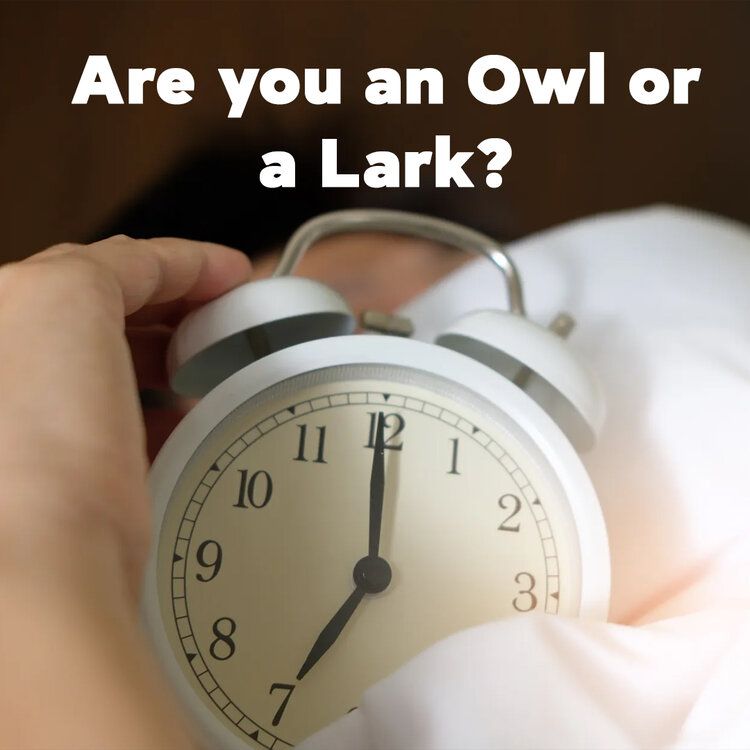Whether you prefer being up at dawn or burning the midnight oil depends on your genes, experts have found.
Some of us leap out of bed each morning, raring to start the day. Others need at least one alarm clock – preferably one with a snooze button – to ensure they get to work on time.
Some of us happily stay up chatting until the wee small hours, while others prefer to be tucked up listening to ‘Book at Bedtime’ with the lights turned out.
But scientists have come to realise the importance of understanding a person’s chronotype, the time of the day when they function the best.
Knowing how much of a lark or an owl we are should help us live more healthily in the modern 24/7 world.
Your body has a specific preference, or “chronotype,” for how your circadian rhythm aligns with the sun’s daily pattern. If your body is naturally more active in the morning, your chronotype is “lark” or “early bird.” If your body is more alert in the evenings, your chronotype is a “night owl.” Your type determines when your body executes certain routines:

Temperature: Your core body temperature drops near your optimal bedtime and rises again just before you wake. Night owls typically lag 2-3 hours behind larks.
· Melatonin: Your melatonin levels begin to increase a few hours before your ideal bedtime. Night owl melatonin levels typically increase 2-3 hours after those of early birds.
· Cortisol: Your body initiates a rush of cortisol to jumpstart your day. Early birds receive a larger influx that arrives earlier in the morning.
· Growth Hormone: When your circadian rhythm is aligned, a large dose of growth hormone is released in time for night time repairs, soon after you fall asleep. If you’re out of circadian alignment, this may occur at the wrong time or not at all.
The consensus is that the population is 40% early birds, 30% night owls, and the rest are somewhere in between…
Similar to how the sun rises each morning, your body plays out your circadian rhythm, whether or not you sleep. If you want to optimize your sleep, try to match your bedtime consistently with your body’s natural rhythm.
If you want to identify your circadian rhythm more quickly, say goodbye to your alarm for a few days—or a week if you can—and observe your body’s natural wake time.
And to help you discover whether you’re an owl or a lark, we’ve created a downloadable questionnaire that will identify which one you are. To check it out, click here www.prolongevity.co.uk/downloadable-form





